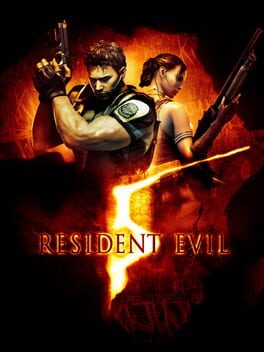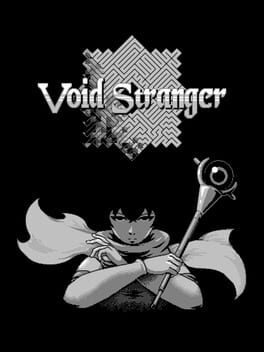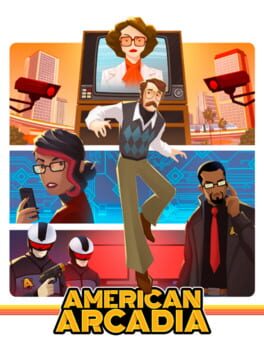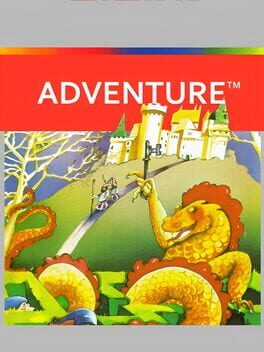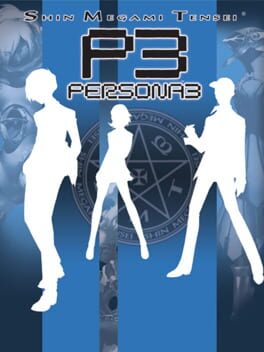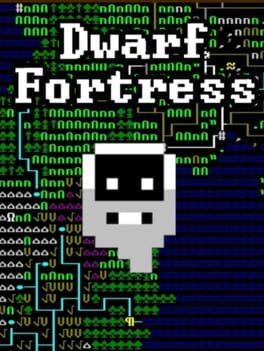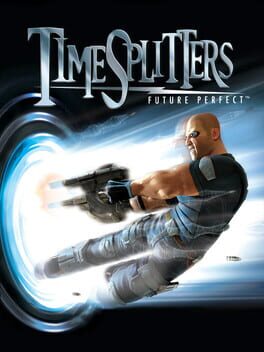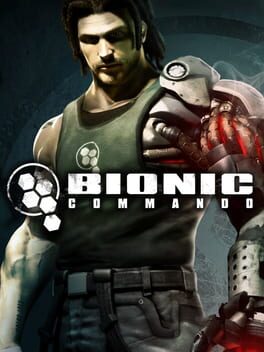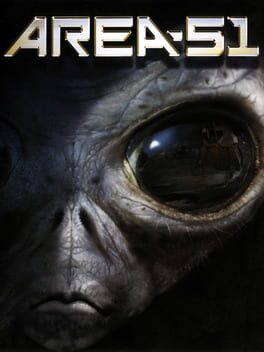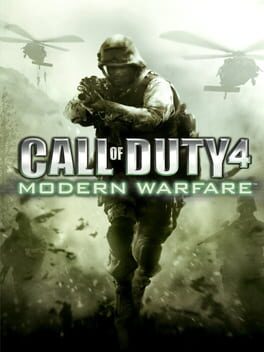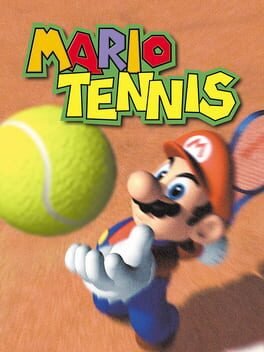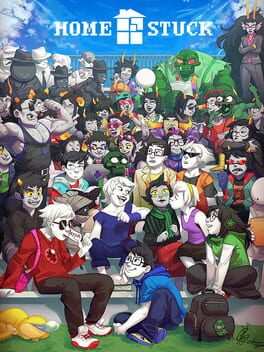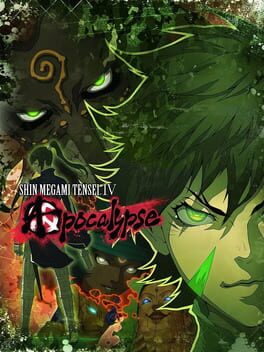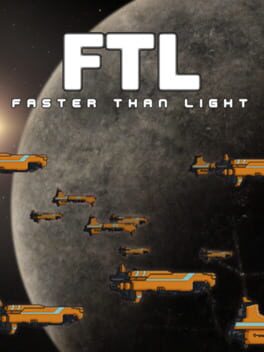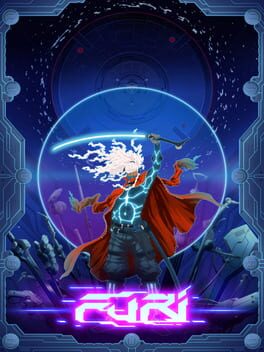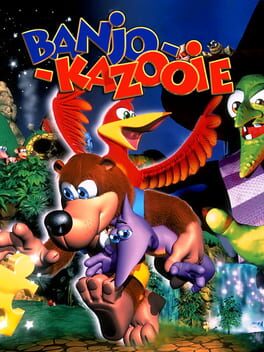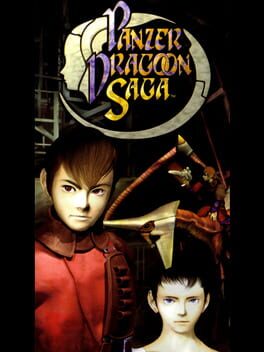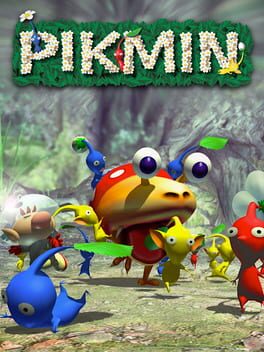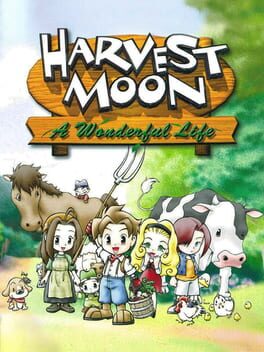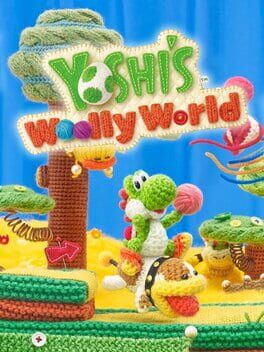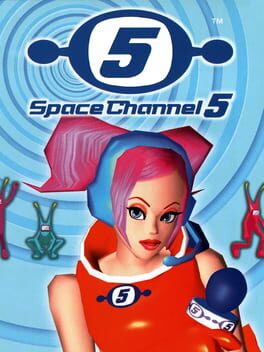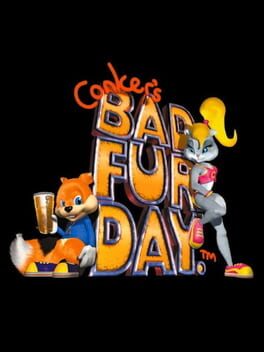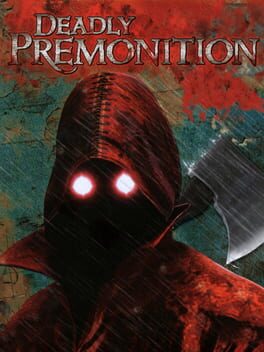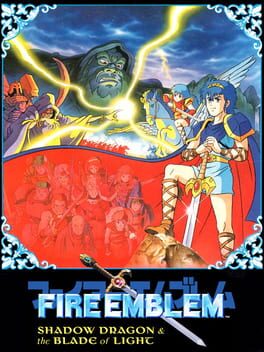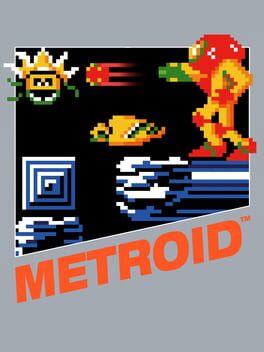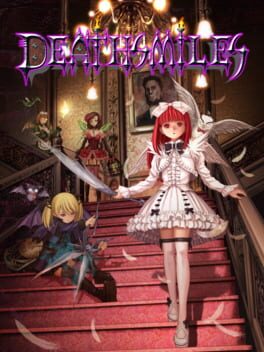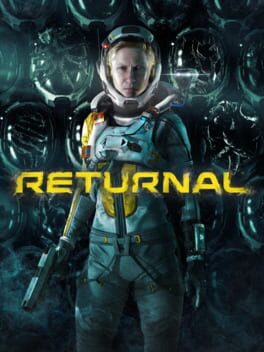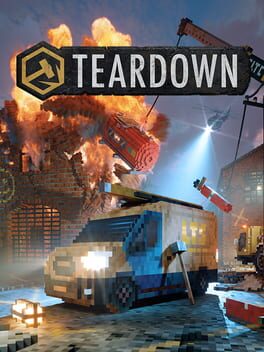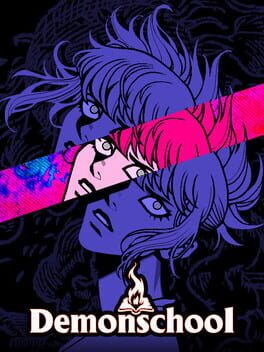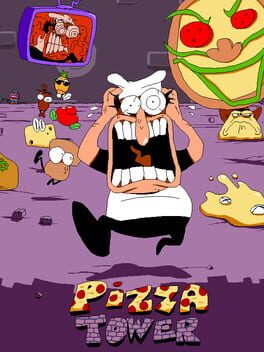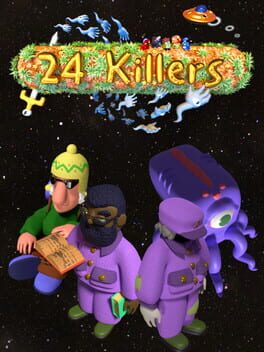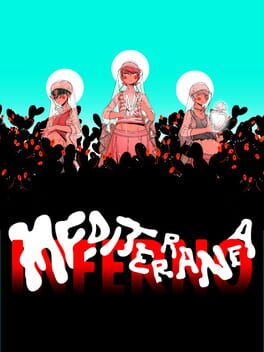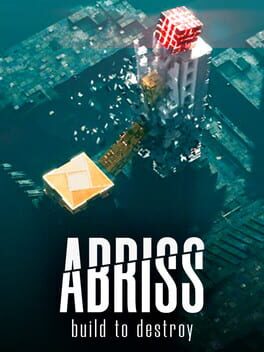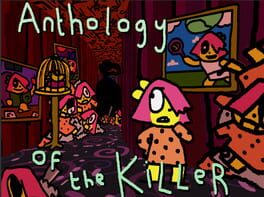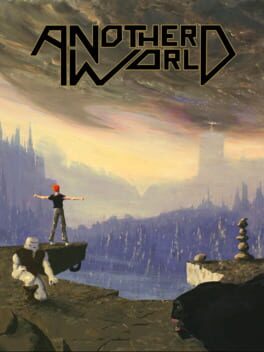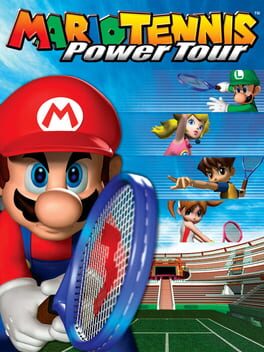yetuuliye
85 reviews liked by yetuuliye
Resident Evil 5
2009
Normally, thinking about a sequel to Resident Evil 4 is thinking it to be as simple as copying the system again and being done, how could a bad game come out of there? Even better, smooth the system to focus on combat: more melee options and dynamic inventory management limited on what's important without stopping the action.
Turns out that it was also important to know how to design and place enemies and scenarios, to be put against the ropes depended not only on the system but in always feeling surrounded and having to reposition constantly. Because of this, Resident Evil 5 starts by looking at some of the best ideas of 4, the moment inspired by the first raid at the village appears shortly in an open survival arena where enemies will keep appearing. Obviously, it's a highlight, nothing more is needed to feel constantly cornered.
The way is lost at every other moment. Whether it's trying to take advantage of splitting up and covering your backs in co-op, fighting in a cramped incinerator against a monster almost immune to gunfire, or navigating the dark of the mines, the game doesn't come even close to the tension of its predecessor. On top of that, the slapstick tone is much more blurred, seeming almost accidental, as in the possibility to melee combo some enemies together with your partner. Casual exceptions aside, the hits have lost impact and the cinematography style, there is an identity crisis due to a mishmash of trends of the period between military shooter, giant aliens from Gears of War and Matrix scenes that do not fit at all with what Resident Evil 4 was. It seems that it wasn't as simple as replicating a system and hoping that everything else could hold up.
It's no surprise then that the best part is the mercenaries mode. If Resident Evil 5 looks at the village raid to build its best moment right out of the gate, it can also look at the mercenaries mode derived from that sequence. Here disappears the clumsiness of trying to confusingly replicate without understanding and without genius. It goes the roughest way, to survive enemy waves in the system that could not fail, even with the Frankenstein erratic mashups still well in sight.
Turns out that it was also important to know how to design and place enemies and scenarios, to be put against the ropes depended not only on the system but in always feeling surrounded and having to reposition constantly. Because of this, Resident Evil 5 starts by looking at some of the best ideas of 4, the moment inspired by the first raid at the village appears shortly in an open survival arena where enemies will keep appearing. Obviously, it's a highlight, nothing more is needed to feel constantly cornered.
The way is lost at every other moment. Whether it's trying to take advantage of splitting up and covering your backs in co-op, fighting in a cramped incinerator against a monster almost immune to gunfire, or navigating the dark of the mines, the game doesn't come even close to the tension of its predecessor. On top of that, the slapstick tone is much more blurred, seeming almost accidental, as in the possibility to melee combo some enemies together with your partner. Casual exceptions aside, the hits have lost impact and the cinematography style, there is an identity crisis due to a mishmash of trends of the period between military shooter, giant aliens from Gears of War and Matrix scenes that do not fit at all with what Resident Evil 4 was. It seems that it wasn't as simple as replicating a system and hoping that everything else could hold up.
It's no surprise then that the best part is the mercenaries mode. If Resident Evil 5 looks at the village raid to build its best moment right out of the gate, it can also look at the mercenaries mode derived from that sequence. Here disappears the clumsiness of trying to confusingly replicate without understanding and without genius. It goes the roughest way, to survive enemy waves in the system that could not fail, even with the Frankenstein erratic mashups still well in sight.
Resident Evil 5
2009
Prueba de lo poco que entendemos los videojuegos en realidad, y de que a veces lo que los hace buenos o malos está en los hilos invisibles que sostienen aquello que apreciamos a primera vista.
Resident Evil 5 empeora considerablemente lo conseguido por su antecesor pese a mejorar el sistema de combate, que es la base de la propuesta. Ahora podemos finiquitar enemigos derribados de un pisotón en lugar de esperar a que se levanten, lo que agiliza el ritmo de los encuentros, y el nuevo modo cooperativo propicia dinámicas de compenetración que enriquecen la jugabilidad. El inventario, antes un pequeño minijuego de optimización de espacio, ahora es un plus para la acción: reduciendo el espacio para ítems nos obliga a sacrificar armamento y evita que vayamos sobrados de munición, y su nuevo uso a tiempo real fuerza instantes de tensión cada vez que queremos usar granadas o hierbas curativas o lo que sea. Además, al estar compuesto de unos pocos huecos separados a los que hay asignado un botón, dónde se pone cada cosa importa. Sin necesidad de malgastar minutos colocando y ordenando, librándose de las pausas in-game y reservando todo el tiempo posible para la acción. Debería haber sido el mejor Resident Evil, pero no fue así.
Resident Evil 5 es el primer videojuego de la franquicia ya cien por cien juego de acción. El título está fundamentalmente conformado por set pieces, reduciendo la importancia de la navegación, y con esto se pierde la parte de recorrer un mundo y sentir que uno avanza y descubre y a ver a dónde demonios voy ahora. Además, es todo tan rocambolesco y estúpido y, sobre todo, se siente tan inconexo, que uno nunca termina de estar ahí. No es solo cuestión de atmósfera, sino de continuidad e inmersión. Y lo peor de todo es el diseño. Lo que hacía funcionar tan bien la acción de Resident Evil 4 era su manera de rodearnos de enemigos. Básicamente, el juego se resumía en llegar a un lugar y ser emboscado para acto seguido tener uno que sacarse las castañas del fuego como buenamente pudiera. Control de masas. Y la clave de un buen control de masas está en el posicionamiento respecto al enemigo, cosa que aquel título sabía exprimir con sus escenarios, más cerrados y limitantes. Siempre sentíamos el agua al cuello, incluso cuando no era del todo así, y cada cambio de arma o granada empleada se sentía crucial. Pero en Resident Evil 5 esto apenas sucede. Siempre hay demasiado espacio, siempre es fácil acabar con los esbirros o huir o encontrar coberturas. Y, si no, tu compañero ya te echa un cable. Su énfasis en el espectáculo es agotador y su acción, pese a la aparente mejora, sabe a menos. Es un videojuego decente, pero decepcionante y en cierta medida insustancial.
Resident Evil 5 empeora considerablemente lo conseguido por su antecesor pese a mejorar el sistema de combate, que es la base de la propuesta. Ahora podemos finiquitar enemigos derribados de un pisotón en lugar de esperar a que se levanten, lo que agiliza el ritmo de los encuentros, y el nuevo modo cooperativo propicia dinámicas de compenetración que enriquecen la jugabilidad. El inventario, antes un pequeño minijuego de optimización de espacio, ahora es un plus para la acción: reduciendo el espacio para ítems nos obliga a sacrificar armamento y evita que vayamos sobrados de munición, y su nuevo uso a tiempo real fuerza instantes de tensión cada vez que queremos usar granadas o hierbas curativas o lo que sea. Además, al estar compuesto de unos pocos huecos separados a los que hay asignado un botón, dónde se pone cada cosa importa. Sin necesidad de malgastar minutos colocando y ordenando, librándose de las pausas in-game y reservando todo el tiempo posible para la acción. Debería haber sido el mejor Resident Evil, pero no fue así.
Resident Evil 5 es el primer videojuego de la franquicia ya cien por cien juego de acción. El título está fundamentalmente conformado por set pieces, reduciendo la importancia de la navegación, y con esto se pierde la parte de recorrer un mundo y sentir que uno avanza y descubre y a ver a dónde demonios voy ahora. Además, es todo tan rocambolesco y estúpido y, sobre todo, se siente tan inconexo, que uno nunca termina de estar ahí. No es solo cuestión de atmósfera, sino de continuidad e inmersión. Y lo peor de todo es el diseño. Lo que hacía funcionar tan bien la acción de Resident Evil 4 era su manera de rodearnos de enemigos. Básicamente, el juego se resumía en llegar a un lugar y ser emboscado para acto seguido tener uno que sacarse las castañas del fuego como buenamente pudiera. Control de masas. Y la clave de un buen control de masas está en el posicionamiento respecto al enemigo, cosa que aquel título sabía exprimir con sus escenarios, más cerrados y limitantes. Siempre sentíamos el agua al cuello, incluso cuando no era del todo así, y cada cambio de arma o granada empleada se sentía crucial. Pero en Resident Evil 5 esto apenas sucede. Siempre hay demasiado espacio, siempre es fácil acabar con los esbirros o huir o encontrar coberturas. Y, si no, tu compañero ya te echa un cable. Su énfasis en el espectáculo es agotador y su acción, pese a la aparente mejora, sabe a menos. Es un videojuego decente, pero decepcionante y en cierta medida insustancial.
Void Stranger
2023
Necesitaría mucho más que unas pocas líneas para intentar describir los altibajos emocionales que Void Stranger me ha provocado. Incomprensión e incomodidad, interés y fascinación, rabia y melancolía, alegría y asombro, y finalmente, un tono agridulce al que me alegro de haber jugado. Por cada piso que pude terminar por mi cuenta, hubo tres que tuve que buscar la solución online; por cada mural que descifré, dos que no hubiera entendido jamás; y por cada escena de culpa católica enmarcada en personajes estereotípicos que me hizo apretar los dientes de la indignación, hubo tres que me hicieron sentir que estaba tocando de verdad al autore.
Decimos que los juegos son obras personales de la misma forma que decimos que detrás de cada obra de arte se sobreentiende siempre cierto esfuerzo y horas de trabajo: como una convención comodona, destinada a reafirmar nuestra decisión de dedicar el poco tiempo que tenemos de vida a un arte que seguramente no posea ni la mitad de humanidad que el poema más parco. Con Void Stranger sentí que experimentaba arte y basura a partes iguales, y en ese sentido, es un juego que me ha hecho pensar más que nunca en mi relación con este medio que me ha traído tantas alegrías y tantas, tantas decepciones.
Puedes admirar Void Stranger por la inquina mentalidad puesta a la hora de diseñar según que puzzles, y puedes detestarlo por su tendencia casi obsesiva a la ofuscación, que en más de una ocasión me hicieron querer cortar del todo. También puedes reconocer su intrincada narración, digna de cierta escuela de diseño post-Undertale que pareció tomar como única lección el accidente de Gaster. Pero para mí, lo que tiene valor de esta maraña de modos extra es el hecho de que, al final del día, el mensaje siempre es el mismo, el de la importancia de aprender a amar. En los momentos en que es así de simple, Void Stranger me agarra de verdad, y en los momentos en que deja relucir sus partes más avergonzadas, es cuando me irrita de verdad.
Así que le pongo un 4, porque supongo que un 5 quedaría reservado para los juegos que me afectan a un nivel estrictamente personal o me parecen encapsulaciones ideales de una forma que no siempre sabré explicar, puedo afirmar sin ninguna duda que hay muchas cosas en Void Stranger que no me gustan. Pero no puedo negar que me ha hecho pensar de un modo que pocas obras, irónicamente desde Undertale, lograron.
--------------------------
I would need much more than a few lines to describe the emotional ups and downs that Void Stranger has provoked in me. Incomprehension and discomfort, interest and fascination, anger and melancholy, joy and wonder, and finally, a bittersweet note that I'm glad I had the opportunity to experience. For every floor I was able to finish on my own, there were three I had to look up the solution online for; for every mural I deciphered, two of them I would never have guessed on my own; and for every scene of Catholic guilt framed by stereotypical characters that made me cringe in indignation, there were three that made me feel like I was really reaching the author.
We say that games are personal works in the same way that there's always some effort put behind everything, in the sense that we use to reaffirm our life choice to devote so much of our precious time on Earth to an art form that probably doesn't have as much humanity within it as the shortest poem. With Void Stranger I felt like I was experiencing art and dreck on several occasions, and in that sense, it is a game that has made me think more about my relationship with a medium that has brought me so much joy and yet so much disappointment than many others.
You can admire Void Stranger for its devilish attitude towards puzzle design, and you can loathe it for its almost obsessive tendency to obfuscation, which made me want to quit it many times. You can also recognize its intricate storytelling, worthy of a post-Undertale school of design that took Gaster's accidental fame as its main bullet point. But for me, what's valuable about this mess of a title is the fact that, at the end of the day, the message remains the same: That of the importance of being loved. When it's that simple, is when it grabs me better. And when it's much more dishonest and shameful is when it really irritates me.
So I give it a 4, because I suppose a 5 should be reserved for games that affect me on a very personal level or encapsulate an ideal form of gaming that I'm not always good at explaining. I can state without a doubt that there are many things in Void Stranger that I don't like. But I can't deny that it has made me think in a way that few works, ironically since Undertale, managed to do.
Decimos que los juegos son obras personales de la misma forma que decimos que detrás de cada obra de arte se sobreentiende siempre cierto esfuerzo y horas de trabajo: como una convención comodona, destinada a reafirmar nuestra decisión de dedicar el poco tiempo que tenemos de vida a un arte que seguramente no posea ni la mitad de humanidad que el poema más parco. Con Void Stranger sentí que experimentaba arte y basura a partes iguales, y en ese sentido, es un juego que me ha hecho pensar más que nunca en mi relación con este medio que me ha traído tantas alegrías y tantas, tantas decepciones.
Puedes admirar Void Stranger por la inquina mentalidad puesta a la hora de diseñar según que puzzles, y puedes detestarlo por su tendencia casi obsesiva a la ofuscación, que en más de una ocasión me hicieron querer cortar del todo. También puedes reconocer su intrincada narración, digna de cierta escuela de diseño post-Undertale que pareció tomar como única lección el accidente de Gaster. Pero para mí, lo que tiene valor de esta maraña de modos extra es el hecho de que, al final del día, el mensaje siempre es el mismo, el de la importancia de aprender a amar. En los momentos en que es así de simple, Void Stranger me agarra de verdad, y en los momentos en que deja relucir sus partes más avergonzadas, es cuando me irrita de verdad.
Así que le pongo un 4, porque supongo que un 5 quedaría reservado para los juegos que me afectan a un nivel estrictamente personal o me parecen encapsulaciones ideales de una forma que no siempre sabré explicar, puedo afirmar sin ninguna duda que hay muchas cosas en Void Stranger que no me gustan. Pero no puedo negar que me ha hecho pensar de un modo que pocas obras, irónicamente desde Undertale, lograron.
--------------------------
I would need much more than a few lines to describe the emotional ups and downs that Void Stranger has provoked in me. Incomprehension and discomfort, interest and fascination, anger and melancholy, joy and wonder, and finally, a bittersweet note that I'm glad I had the opportunity to experience. For every floor I was able to finish on my own, there were three I had to look up the solution online for; for every mural I deciphered, two of them I would never have guessed on my own; and for every scene of Catholic guilt framed by stereotypical characters that made me cringe in indignation, there were three that made me feel like I was really reaching the author.
We say that games are personal works in the same way that there's always some effort put behind everything, in the sense that we use to reaffirm our life choice to devote so much of our precious time on Earth to an art form that probably doesn't have as much humanity within it as the shortest poem. With Void Stranger I felt like I was experiencing art and dreck on several occasions, and in that sense, it is a game that has made me think more about my relationship with a medium that has brought me so much joy and yet so much disappointment than many others.
You can admire Void Stranger for its devilish attitude towards puzzle design, and you can loathe it for its almost obsessive tendency to obfuscation, which made me want to quit it many times. You can also recognize its intricate storytelling, worthy of a post-Undertale school of design that took Gaster's accidental fame as its main bullet point. But for me, what's valuable about this mess of a title is the fact that, at the end of the day, the message remains the same: That of the importance of being loved. When it's that simple, is when it grabs me better. And when it's much more dishonest and shameful is when it really irritates me.
So I give it a 4, because I suppose a 5 should be reserved for games that affect me on a very personal level or encapsulate an ideal form of gaming that I'm not always good at explaining. I can state without a doubt that there are many things in Void Stranger that I don't like. But I can't deny that it has made me think in a way that few works, ironically since Undertale, managed to do.
American Arcadia
2023
Al final de un juego que tiene plataformas de mentira, sigilo de mentira, puzzles de mentira, una trama distópica haciendo críticas de mentira sobre nada, se revela lo obvio. El juego no tiene ni una pizca de esperanza de que las cosas puedan ir a mejor o de que los seres humanos se comporten como tal, y en los créditos se asegura de mostrar que todo intento de su (pobre y falsa) idea de revolución es devorado por el mercado.
Esto se debe a que es un juego devorado por el mercado, por la tendencia, por la mentira, por hacer porque sí, por ser rentable, porque no cree que los humanos tengan nada que hacer por gusto, porque cree que cualquiera se vende o como poco se acaba engatusando por el mal. En esta secuencia de créditos con tono burlón y desesperanzador, el punto de miseria más alto es uno inesperado y accidental. Entre los mensajes de agradecimiento de los desarrolladores, por lo general nada fuera de lo normal, uno de ellos dedica unas palabras muy sentidas a su madre fallecida recientemente. Después de tantas horas de falsedad choca ver un acto tan escondido y tan humano de la nada, que tarda poco en desaparecer de pantalla mientras una versión ensalzada de ironía de la canción recurrente principal sigue sonando, mientras las imágenes de fondo y la escena post créditos se suceden perpetuando que el ser humano no importa y que no tiene capacidad de empatía ni de amor.
Esto se debe a que es un juego devorado por el mercado, por la tendencia, por la mentira, por hacer porque sí, por ser rentable, porque no cree que los humanos tengan nada que hacer por gusto, porque cree que cualquiera se vende o como poco se acaba engatusando por el mal. En esta secuencia de créditos con tono burlón y desesperanzador, el punto de miseria más alto es uno inesperado y accidental. Entre los mensajes de agradecimiento de los desarrolladores, por lo general nada fuera de lo normal, uno de ellos dedica unas palabras muy sentidas a su madre fallecida recientemente. Después de tantas horas de falsedad choca ver un acto tan escondido y tan humano de la nada, que tarda poco en desaparecer de pantalla mientras una versión ensalzada de ironía de la canción recurrente principal sigue sonando, mientras las imágenes de fondo y la escena post créditos se suceden perpetuando que el ser humano no importa y que no tiene capacidad de empatía ni de amor.
Adventure
1979
The first great triumph of purely videogame adventure is also one of the first great triumphs of abstraction. The power of Adventure goes beyond the evocative, which is no menial thing, but embraces a wholly abstract language to build a world far more robust and plausible than any other that actively attempts to imitate reality.
It is curious for Colossal Cave Adventure to be one of the main sources of inspiration. It isn’t unexpected that it was taken as a source, as there must not have been many successful examples at the time in the search of adventure, but in how the paths diverged, almost reactionary. Adventure gets rid of words altogether to commit to a total physical world. Consequently, contrary to what abandoning immediate realism may imply, the world of Adventure becomes much more intuitive and believable. There is no longer the conflict of having to puzzle out what kind of commands a word processor is able to understand or not in order to move forward, there is instead the discovery of a system that, while allowing itself to be much simpler, is also much more transparent.
You can grab objects and drop them, birds can also carry (and steal) objects, magnets attract objects contained in the same screen, bridges allow you to cross walls (or whatever they are)... All these rules are not broken at any time and lead to a world that, as Tim Schafer says in the Atari 50 Collection, seems alive, that is able to exist even if the player is not present. Thus, birds can carry away a dragon, a key, a magnet attracting a key, or the player can peek sections of the world while traveling defeated in the belly of a dragon. This contributes in two areas: one of wit from being able to use the available elements in our favor to avoid or tackle obstacles, and another of unpredictability, chaos and life, because given the rules the dislocations of all the elements throughout the map during the game are more than certain. There is always a factor that requires improvisation while continuing the discovery.
It’s difficult to explain how well Adventure applies multiple abstractions to its advantage since many of them have been irremediably absorbed by everything that would come after. As Terry Cavanagh understood in Mr. Platformer, paying homage to similar early titles such as Atari 2600’s Pitfall or Montezuma’s Revenge, these first videogame steps that began to understand abstraction also began to use it as a liberating language. Where entering through a door into a fortress was teleporting into a labyrinth, moving past the edge of the screen was discovering a new piece of the world and doing so repeatedly on the same side discovered a spatially impossible loop.
It's a process of genuine discovery because it doesn’t attempt to clumsily replicate reality, but rather to discover new ways of navigating, interacting and understanding a world. And in the face of all these new, impossible and abstract forms remains a strong, direct and unmistakable sensation: Adventure.
It is curious for Colossal Cave Adventure to be one of the main sources of inspiration. It isn’t unexpected that it was taken as a source, as there must not have been many successful examples at the time in the search of adventure, but in how the paths diverged, almost reactionary. Adventure gets rid of words altogether to commit to a total physical world. Consequently, contrary to what abandoning immediate realism may imply, the world of Adventure becomes much more intuitive and believable. There is no longer the conflict of having to puzzle out what kind of commands a word processor is able to understand or not in order to move forward, there is instead the discovery of a system that, while allowing itself to be much simpler, is also much more transparent.
You can grab objects and drop them, birds can also carry (and steal) objects, magnets attract objects contained in the same screen, bridges allow you to cross walls (or whatever they are)... All these rules are not broken at any time and lead to a world that, as Tim Schafer says in the Atari 50 Collection, seems alive, that is able to exist even if the player is not present. Thus, birds can carry away a dragon, a key, a magnet attracting a key, or the player can peek sections of the world while traveling defeated in the belly of a dragon. This contributes in two areas: one of wit from being able to use the available elements in our favor to avoid or tackle obstacles, and another of unpredictability, chaos and life, because given the rules the dislocations of all the elements throughout the map during the game are more than certain. There is always a factor that requires improvisation while continuing the discovery.
It’s difficult to explain how well Adventure applies multiple abstractions to its advantage since many of them have been irremediably absorbed by everything that would come after. As Terry Cavanagh understood in Mr. Platformer, paying homage to similar early titles such as Atari 2600’s Pitfall or Montezuma’s Revenge, these first videogame steps that began to understand abstraction also began to use it as a liberating language. Where entering through a door into a fortress was teleporting into a labyrinth, moving past the edge of the screen was discovering a new piece of the world and doing so repeatedly on the same side discovered a spatially impossible loop.
It's a process of genuine discovery because it doesn’t attempt to clumsily replicate reality, but rather to discover new ways of navigating, interacting and understanding a world. And in the face of all these new, impossible and abstract forms remains a strong, direct and unmistakable sensation: Adventure.
are you using your time to properly think and talk with art? are you listening? or do you plug your ears anytime it tries to talk with you, to challenge you and make you rethink what you're engaging with?
i don't think i have any common ground with most people who like videogames, actually. but i don't think this is just videogames anymore, this is endemic in all of the arts. people stopped being listeners, started being consumers. no long a plot twist will make your heart skip a beat, now it's the author "betraying" your trust. no longer can complicated concept be presented before your public, now you're "fumbling", "overdesigning" or whatever new word people will invent to use as analytical shortcuts. like, really, you spent 90h with this game and all you could get back from it was that it has "Ubisoft-like" design because it has towers? i don't care if you gave the game 4 or 5 stars or if that was a compliment, is it that hard to think more about it? am i setting the bar too high? probably.
Final Fantasy VII Rebirth is not a product, it's an art piece which you converse with (that's honestly 99.9% of games too btw). hefty admission price for sure, but it does not need to cater to you at any moment. it needs to be heard, seen, felt, I think running around the grasslands felt incredible and vibrant, i love how every map changes its whole design based on the chocobos, i love how sidequests have their own little songs to them with battle music included, i love how every character gets explored a whole ton more because now they have the time to do so, I love how Tifa can be herself instead of Cloud's past, I liked every change, I think this game is probably one of the most courageous games ever made and that will ever be made and people won't appreciate it enough, but that's fine because I will.
the more i think about it, the more i think about its last hours, the more i think how they handled -that moment- the more I like it. I like this and Remake for entirely different reasons, but Rebirth made me feel things I don't think i was even aware I could feel playing a game and I don't mean crying i cry for everything and i cried super hard at several moments in this game, it's something else, which i would only dare to explain if I had spoilered this text but i don't want to do so.
like i said i think i finally realized my lack of common ground is what makes it really hard to talk about videogames outside of my circle, people who only wear "videogames are art!!" as a mantle for feeling validated, but not really treating them much differently than the hamburger they'll buy for lunch. i don't mind if you didn't like the game but i only ask for something of substance, an interesting read, at the very least a personal perspective, not internet gaming buzzwords i can see in like 60 other reviews. i just want to think and challenge myself and i feel like i'm always going into a hivemind. but i guess that's fine i get to cherish good things when i see them at least.
i just need to remind myself of this
i don't think i have any common ground with most people who like videogames, actually. but i don't think this is just videogames anymore, this is endemic in all of the arts. people stopped being listeners, started being consumers. no long a plot twist will make your heart skip a beat, now it's the author "betraying" your trust. no longer can complicated concept be presented before your public, now you're "fumbling", "overdesigning" or whatever new word people will invent to use as analytical shortcuts. like, really, you spent 90h with this game and all you could get back from it was that it has "Ubisoft-like" design because it has towers? i don't care if you gave the game 4 or 5 stars or if that was a compliment, is it that hard to think more about it? am i setting the bar too high? probably.
Final Fantasy VII Rebirth is not a product, it's an art piece which you converse with (that's honestly 99.9% of games too btw). hefty admission price for sure, but it does not need to cater to you at any moment. it needs to be heard, seen, felt, I think running around the grasslands felt incredible and vibrant, i love how every map changes its whole design based on the chocobos, i love how sidequests have their own little songs to them with battle music included, i love how every character gets explored a whole ton more because now they have the time to do so, I love how Tifa can be herself instead of Cloud's past, I liked every change, I think this game is probably one of the most courageous games ever made and that will ever be made and people won't appreciate it enough, but that's fine because I will.
the more i think about it, the more i think about its last hours, the more i think how they handled -that moment- the more I like it. I like this and Remake for entirely different reasons, but Rebirth made me feel things I don't think i was even aware I could feel playing a game and I don't mean crying i cry for everything and i cried super hard at several moments in this game, it's something else, which i would only dare to explain if I had spoilered this text but i don't want to do so.
like i said i think i finally realized my lack of common ground is what makes it really hard to talk about videogames outside of my circle, people who only wear "videogames are art!!" as a mantle for feeling validated, but not really treating them much differently than the hamburger they'll buy for lunch. i don't mind if you didn't like the game but i only ask for something of substance, an interesting read, at the very least a personal perspective, not internet gaming buzzwords i can see in like 60 other reviews. i just want to think and challenge myself and i feel like i'm always going into a hivemind. but i guess that's fine i get to cherish good things when i see them at least.
i just need to remind myself of this
Persona 3
2006
Dwarf Fortress
2006
Más juego de rol que la mayoría de rpgs que existen. Sin el componente social directo del rol de papel y lapiz, la experiencia de jugar Dwarf Fortress es una absorta y solitaria. Pero un componente social indirecto surge inevitablemente. Como generador de historias que es, crea la necesidad natural de contar esas historias. La crudeza de la presentación en ASCII es perfecta para la abstracción literaria de la propuesta. Y de ese impulso a compartir surgen todos esos post en foros, vídeos de youtube, guías y crónicas, como una extensión más de lo que es Dwarf Fortress. Una comunidad altruista empeñada en compartir conocimiento sobre un juego gratuito hecho por dos hermanos a lo largo de su vida. Un creador de mundos, civilizaciones, fortalezas y enanos obsesionados con la cerveza y cavar hasta encontrar la efímera gloria o su inevitable ruina.
Her Story
2015
Talked about this one on my podcast The Safe Room.
I don't mind the apparatus of this, but I do think it is poorly used here? Basically the trick of the mystery is just getting to the last run of clips, where Hannah explains the plot in entirety to you. You can do a lot of work to construct the mystery that the game ends up just doing for you. Could stand for more ambiguity.
I thought about Delores Claiborne (the novel specifically) a lot playing this, which does veer into horror briefly, but is ultimately mundane. Her Story is about women and police in only the most superficial ways. It can't really muster a systemic awareness or make that emotive. Claiborne has a scene were Delores goes to the bank to take out her daughter's college savings... only to find her husband has withdrawn them all. Her Story's direction is ultimately abstract and fairy-tale-like and it could far more biting mundanities.
I don't mind the apparatus of this, but I do think it is poorly used here? Basically the trick of the mystery is just getting to the last run of clips, where Hannah explains the plot in entirety to you. You can do a lot of work to construct the mystery that the game ends up just doing for you. Could stand for more ambiguity.
I thought about Delores Claiborne (the novel specifically) a lot playing this, which does veer into horror briefly, but is ultimately mundane. Her Story is about women and police in only the most superficial ways. It can't really muster a systemic awareness or make that emotive. Claiborne has a scene were Delores goes to the bank to take out her daughter's college savings... only to find her husband has withdrawn them all. Her Story's direction is ultimately abstract and fairy-tale-like and it could far more biting mundanities.
Xenoblade Chronicles 2 wastes your time with slow battles and inflated healthbars. It wastes your time with slow menus and long load screens. It wastes your time with having to play a gacha in order to fill requirements to progress both main and side content. It wastes your time with asking you to open a blade's skill tree every single time a skill is unlocked, otherwise the unlock won't take effect. It wastes your time with a story that lacks real direction and sense of progression towards the main goal for over half of its runtime. It wastes your time with tone-deaf japanese anime tropes and gags. It wastes your time with cutscenes where lipflaps never match dubbed dialogue.
But I think, after all that, the breaking point was being asked to wait real-world time for merc missions to complete. Missions which are critical to completing the game's thorough side content, and missions which unlock QoL static upgrades like boosted movement speed and gold gain. Missions which can take nearly two hours to complete just one if you haven't gotten good enough luck with your gacha pulls to lower the time. Missions which ask the player to wait to be able to play more of the game they paid for.
It's a game with a disgusting lack of respect for its players and should be treated with an equal disrespect.
But I think, after all that, the breaking point was being asked to wait real-world time for merc missions to complete. Missions which are critical to completing the game's thorough side content, and missions which unlock QoL static upgrades like boosted movement speed and gold gain. Missions which can take nearly two hours to complete just one if you haven't gotten good enough luck with your gacha pulls to lower the time. Missions which ask the player to wait to be able to play more of the game they paid for.
It's a game with a disgusting lack of respect for its players and should be treated with an equal disrespect.
24 lists liked by yetuuliye
by ExecutableDavid |
184 Games
by Drax |
75 Games
by imshitting420 |
58 Games
by Lot0 |
15 Games
by Ira |
45 Games
by BeachEpisode |
25 Games
by Beet |
12 Games
by Xator_Nova |
19 Games
by letshugbro |
57 Games
